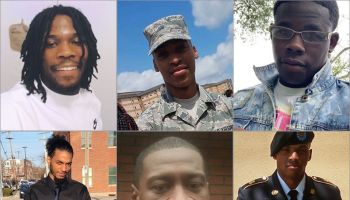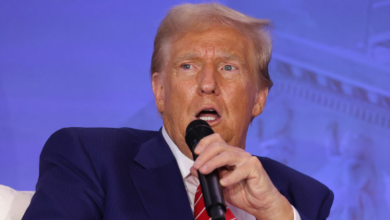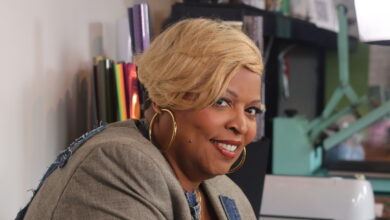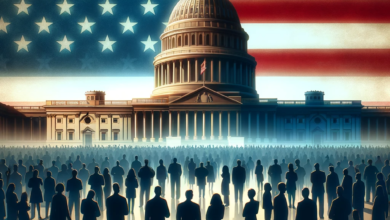Revisiting Healing And Justice At The Million Man March


Source: Blogzworth / Radio One
UPDATE: Oct. 16, 2022 9:00 a.m. EDT —
The enduring legacy and value of the Million Man March cannot be measured in mere words. But the collective gathering of Black men standing shoulder to shoulder was a sight to see in 1995.
On the 27th anniversary of the original Million Man March, we revisit this first-hand account from our Senior Editor, Bilal Morris. Attending the original march as a boy, Morris returned to cover the 20th-anniversary march. Although the original Million Man March was a Black men-only event, the commemorative gathering had Black folks from all walks of life.
In the past seven years, Black communities have seen the end of the first Black family in the White House, a resurgence of blatant white supremacy guiding national politics, an increase in police violence and a global pandemic. We have persisted through it all, with new frontiers emerging in culture, business, technology, justice and beyond.
Now, amid an election cycle riddled with references to what Black men ought to do, we are reminded of the promises Black men made to each other, their families and communities—the decisions we make today impact more than just us.
Original Story:
It was the morning of October 10th, 2015. It felt the same as most weekends I had to work — tough getting out of bed on a Saturday when you know you won’t see it again all day. But today wasn’t like any other working Saturday. It was the second coming of The Million Man March. I was 11 when the first Million Man March came to DC. Memories of 20 years ago lingered in my thoughts as I walked to the Metro train on that brisk weekend morning. I was so wrapped up in my thoughts I almost missed the train.

Source: Blogzworth / Radio One
There were only Black men at the train station that morning, young and old, frat men, Afro-centric, backpackers and hustlers, all with one destination. I spoke to all of the men at the train station. It was a humble form of respect, a way we acknowledged decades of the same plight. A simple handshake said it all. The train was quiet. An old couple mumbled through a conversation that only they could understand.
All I could think about was the pilgrimage I took when I was 11 and how I was taking that same journey 20 years later. I was grown now. I had experienced the plight in my heart, the frustrations that came with being a black man in America. When I was 11, I was happy to be with my father. I didn’t know enough to ask myself why I was going to the Million Man March?
The question pierced my thoughts as if lightning had struck a tree. Why am I going to another March? I’ve done this before. I did this when I was 11, and it obviously didn’t change much.

Source: Blogzworth / Radio One
Then I thought of those handshakes with the men at the train station and how proud it made me feel. That’s when it came to me, the reason to justify in my heart why I was going to the March. Hope.
I needed to feel the pain of the people who shared my plight but also the pride of the people who saw my hope. We had a connection with everyone there, and that’s what I needed in my soul.
A young Black woman sat across from me on the train. She wore an African headdress and a shirt that was straight out of a Spike Lee movie. I followed the Black crowd to the National Mall. There was no need for Google Maps, we all knew where we were going, but we didn’t all know why. So I decided to make it a mission of mine to find out why people came to the Million Man March.

Source: Blogzworth / Radio One
After traveling through the crowd, taking pictures and talking to strangers, you couldn’t help but see the stories of injustice written on the brows of the people. They needed a place to express their pain, so they packed the National Mall, sharing stories of their injustices with people who could relate.
All over the mall were people having conversations, sharing their opinions, and also sharing their solutions to the problems in their respective communities. People tell the stories, they just need a megaphone and my job was to be their loudspeaker. That was my mission for the day, giving a voice to the voiceless and a platform for the disenfranchised.
When I left the mall that day, I knew these stories had to be told in order to be understood. I also realized that the March was just as much for healing as it was for justice. People needed to heal from their wounds of injustice and who better to do that with than thousands of people who feel what you feel.
SEE ALSO:
Commentary: Clarence Thomas Has Been Undermining People’s Rights For 31 Years And Counting
DOJ Says $139 Million Will Go To Hiring More Cops: What That Can Mean For Black People
Source link






